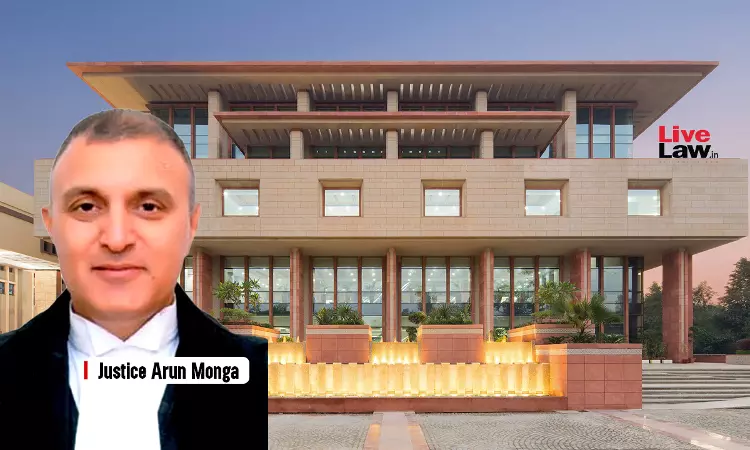Calling Off Marriage After Courtship Not Necessarily Breach Of Promise: Delhi High Court Grants Bail To Accused
Nupur Thapliyal
4 Oct 2025 1:09 PM IST

The Delhi High Court has observed that calling off a marriage after the courtship period, after reasoned choice, cannot be termed as breach of promise to marry.
Granting bail to a man in a case registered for the offence of sexual intercourse with a woman under a false promise of marriage, Justice Arun Monga said:
“It seems to be an unfortunate case where two consenting adults entered into a relationship with the initial intention of exploring the possibility of marriage. However, after getting to know each other better, one party chose not to proceed with the alliance. This legitimate exercise of choice has been misconstrued as a breach of promise.”
“The very purpose of courtship or interaction prior to marriage is to assess mutual compatibility. To suggest that a person cannot change their mind after such interaction would defeat the essence of the concept itself,” the Court said.
The complainant came into contact with the accused in April on a matrimonial website. It was her case that the man represented himself as well settled in Dubai and told her that his family was agreeable to the marriage.
As per the FIR, on coming to India, the man took the woman to a hotel, made physical advances and reassured her by promising that they would soon get married and settle in Dubai.
It was the woman's case that she believed him and that he took objectionable photographs of her during the said meeting. She alleged that before he left for Dubai, he again assured her that the marriage would be solemnized upon his return and that they would start their married life abroad.
She also alleged that when later pressed for marriage, the accused and his family allegedly began placing unlawful demands, including a flat in Dubai, a luxury car, and cash.
As per the FIR, the man also threatened that unless the said conditions were fulfilled, he would not marry her. She alleged that the man, in conspiracy with his mother and sister, had induced her into a false promise of marriage, exploited her sexually, and raised illegal demands in the nature of dowry.
Allowing the plea, the Court said that, prima facie, there may be some substance in certain arguments addressed on merits by accused's counsel but the same were a matter of trial and that at the present stage, it appeared to be a case for bail.
“At one stage, until she changes her stance, the complainant herself admitted in a WhatsApp message that no physical intimacy occurred, contradicting her own FIR. In any case, the claim of a physical relationship on the pretext of marriage based on a failed genuine intent to marry does not constitute rape,” the Court said.
Justice Monga said that even if it was assumed that the allegations of blackmail and dowry demand were true, the same did not attract Section 69 of BNS.
Observing that they were distinct and independent offences triable in accordance with law, the Court said:
“In this context, learned counsel for the applicant also submits that offences under Sections 3 and 4 of the Dowry Prohibition Act are, in any case, bailable. He points out that this is not a case where any dowry was given. At most, it is an allegation of demand, which never culminated into the actual exchange of any article.”
It added that further continued incarceration of the accused would cause undue hardship to his family and serve no useful purpose, especially when the trial is not likely to conclude in the near future, “as it violates the fundamental rule, i.e. bail is the rule and jail an exception.”
“As regards the apprehension of tampering with evidence, there is nothing on record to suggest that the applicant would interfere with evidence or influence witnesses. There is also no likelihood of his absconding, given that he is a well-settled individual, and has deep roots in society and has a family,” the Court said.
“Considering that the primary purpose of bail is to secure the presence of the accused during trial, coupled with the fact that the applicant poses no risk of absconding, his continued detention at this stage would serve no purpose,” it added.
Title: NAVEEN YADAV v. STATE NCT OF DELHI


